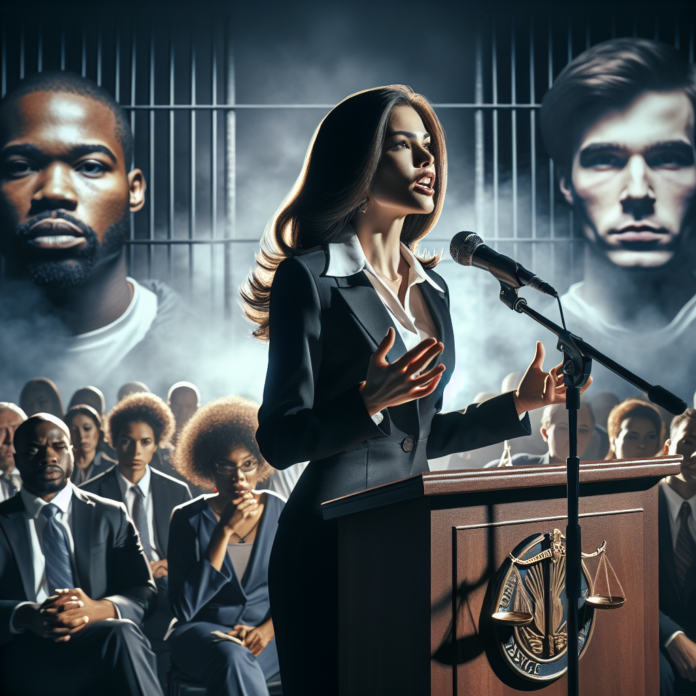In the world of criminal justice reform, few figures are as unexpected yet impactful as Kim Kardashian. Known initially for her reality TV fame, she’s emerged as a formidable advocate for the incarcerated, most recently turning her attention to the high-profile case of the Menendez brothers. Convicted in the 1990s for the murder of their parents, Lyle and Eric Menendez have spent over three decades in prison. Kardashian, leveraging her influence and legal training, is challenging the narrative that led to their life sentences without parole. With claims of abuse surfacing and a justice system ready to revisit old evidence, Kardashian’s efforts illuminate the broader societal questions around justice, rehabilitation, and the capacity for human change. As the case resurfaces, propelled by media scrutiny and newfound evidence, it serves as a poignant example of how celebrity influence can intersect with legal advocacy to potentially reshape lives.
The Case of the Menendez Brothers
Kim Kardashian’s involvement in the Menendez brothers’ case is more than just an attempt to generate headlines. It is a testament to her commitment to criminal justice reform and her belief in second chances. Her journey from reality TV star to law student and advocate demonstrates her dedication to using her platform for meaningful change.
The Menendez brothers, Lyle and Eric, were convicted in 1996 for the murder of their parents, Jose and Kitty Menendez. At the time, the courtroom was a spectacle, capturing the attention of the nation with its dramatic testimonies and media frenzy. However, Kardashian and others argue that a critical piece of the brothers’ story was overlooked: their claims of long-term sexual abuse by their father.
Revisiting the Evidence
Kardashian’s advocacy for the Menendez brothers revolves around a profound belief that people can change and that past mistakes, particularly those rooted in trauma, should be reconsidered under a more compassionate light. She highlights that Lyle and Eric in their 50s are not the same individuals they were at 18 and 21 when the murders occurred.
The debate about whether the brothers should be resentenced is grounded in the acknowledgment that the justice system may have failed to fully examine the evidence and context surrounding their actions. The possibility of the resentencing is not just a legal consideration but a moral and ethical one.
Misjudged Evidence
The brothers’ defense was predicated on the claim of enduring sexual and emotional abuse by their father. Critics of the original trial argue that this was not given the weight it deserved. If this abuse had been considered more thoroughly, the defense might have portrayed a different picture of their mental state at the time of the murders.
Societal Influence
The renewed attention on this case, partially inspired by media portrayal such as Netflix’s “Monster” series, suggests that public perception is shifting. Society is becoming more empathetic and understanding of mental health issues and the profound impacts of childhood trauma.
Celebrity Advocacy
Kim Kardashian’s involvement brings a powerful spotlight to the case. Her influence pushes the narrative beyond traditional legal circles, encouraging a broader public dialogue about justice and rehabilitation. Her work exemplifies how celebrities can leverage their platform to pursue social justice initiatives, challenging the status quo and advocating for those who might otherwise be forgotten.
The Role of the Media
Documentaries and series have a unique power to reopen conversations about historical cases, guiding public awareness and understanding. By revisiting events with contemporary perspectives, these narratives can shed new light on past injustices.
Beyond the Menendez Case
Kardashian’s advocacy also extends beyond the Menendez case, exemplified by her visits to various prisons and her collaboration with nonprofit organizations dedicated to criminal justice reform. This work aligns with a larger movement towards reforming a system that is often criticized for being punitive rather than rehabilitative.
Rehabilitation Over Punishment
Advocates argue that the justice system should focus on rehabilitating inmates rather than solely punishing them. The Menendez brothers, who have already spent 35 years in prison, may have paid their debt to society and deserve a second chance.
Legal Training and Education
Kardashian’s pursuit of legal education demonstrates a commitment to understanding the nuances of the legal system. By equipping herself with knowledge, she is better able to advocate for change and engage with legal professionals.
As a hearing is set to reevaluate the evidence in the Menendez case, the stakes extend far beyond the sentences of two men. This case represents the potential for the justice system to evolve, recognizing the capacity for growth and transformation in those it incarcerates. It serves as a beacon for the relentless pursuit of justice, not merely as punishment, but as a path to healing and redemption.
Kim Kardashian’s role in this narrative underscores how individual passion, coupled with public influence, can drive meaningful change. Her efforts are a reminder of the power of advocating for those who are often voiceless in the justice system, urging society to reconsider how we define justice and who gets to decide it.




